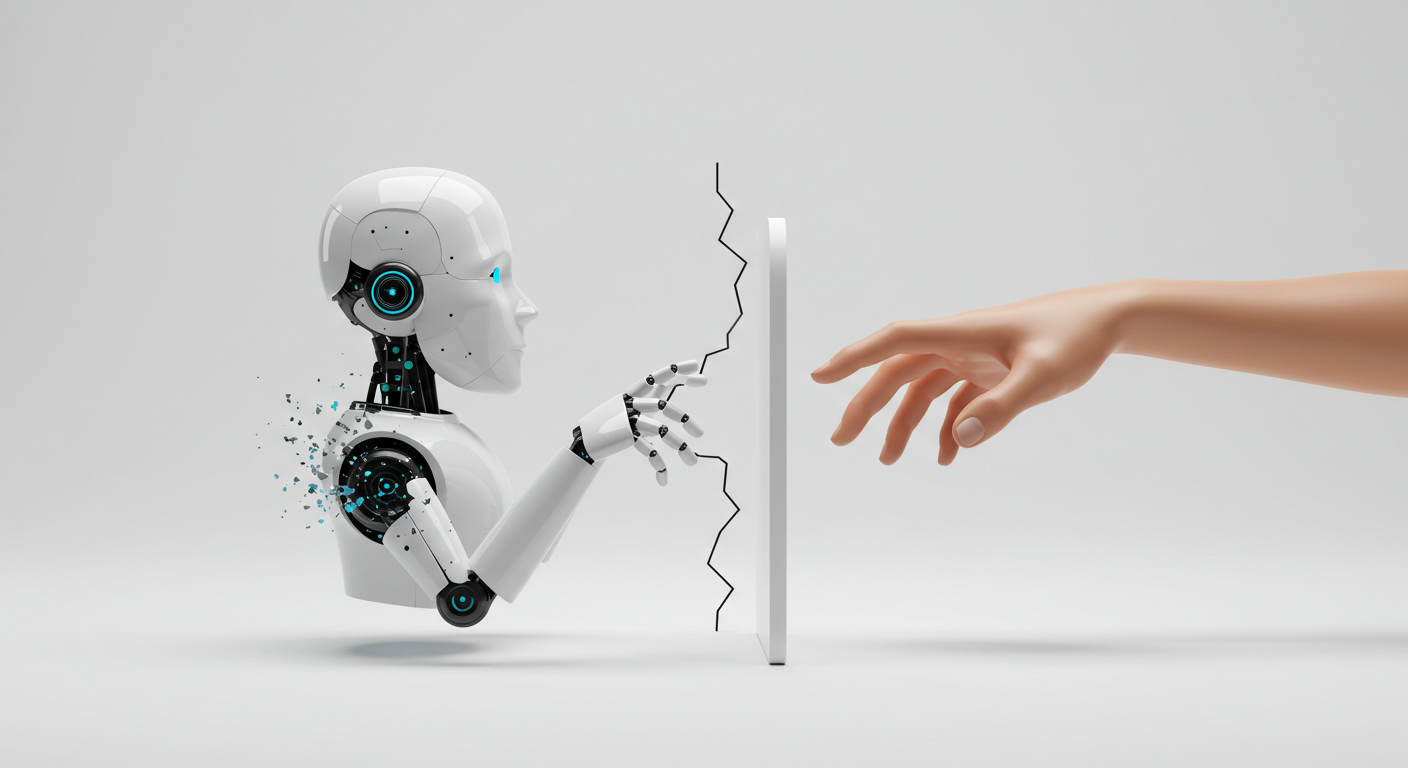A skin care brand on the internet released a sleek new robot in early 2023 to help users choose the best product. It was quick, smart, and technically correct. But after a week, their direct messages were full of messages asking, “Is this a real person?”
“This feels robotic.”
“I’m not sure I trust your recommendations anymore.”
Bad advice wasn’t the issue. How and by whom the advice was given made a difference.
Brands are rushing to add automation as AI spreads through marketing and the customer experience. But there’s a bigger and bigger gap between professional skill and emotional connection. There is a risk to your business in that gap that you can’t ignore.
1. Consumers Are Warming to AI, But Distrust Runs Deep
A 2024 McKinsey poll found that more than 60% of customers have dealt with brand experiences driven by AI, such as robots and ads made by AI. But almost half of those people say those conversations felt cold or fake.
What’s even more telling? A big chunk of people said they’d trust a broken person more than an “imperfect” AI helper.
Why? People don’t just want speed; they want to be heard. Since deepfakes and fake reviews are so common these days, being real has become the new way to be believed.
2. When Automation Undermines Trust
Imagine getting a highly tailored email containing your name, buying history, and ideal product recommendations, but it closes with “Thanks, Marketing Assistant Bot 3.0.”
You would pause. You may cringe.
The takeaway: Automation without transparency generates distrust. Consumers are becoming more aware of AI’s presence, and if a business conceals it or pretends differently, they risk being seen as deceitful.
Instead of deception, marketers must move toward honesty: “This suggestion was created using AI. Please let us know if anything seems odd.” That is trust-building language. That is brand empathy.
3. Perfection Isn’t Persuasive
AI can always come up with perfect language and catchy subject lines. But when it comes to branding, perfection doesn’t always work.
It’s because some of the most powerful marketing efforts are honest, passionate, and flawed.
Brands like Dove, Guinness, and even Nigerian financial startups have learned that telling stories that are based on real people, flaws and all, wins hearts. AI that gets rid of the details makes the story less interesting.
4. The Human Voice Still Matters
It’s not possible for even the most powerful AI to realistically copy real life, humor, cultural cues, or local slang. That’s where producers, community managers, and brand voices who are real people still shine.
Brands that are on the cutting edge use AI behind the scenes but keep people in charge. Tech is used to improve conversation, not to replace it.
The best results happen when people are in charge, and AI helps them. This is true for content creation, relationships with influencers, and social media.
5. Trust Is the Real KPI
No need to worry about views or clicks right now. No measure will help if your users don’t trust what they see.
The most important (and easily broken) part of your brand is trust, when anyone can fake a tweet, write a positive review, or make up a famous recommendation.
The main point? “AI vs. Humans” is not the future. It’s AI plus human ethics plus brand honesty. When done right, that mix builds trust.
Be Real or Be Replaced
AI will always be around. But don’t be surprised if people tune you out or, even worse, stop believing you if your brand’s voice starts to sound like all the other ChatGPT copies.
AI should be used instead to speed up your backend. Give yourself time to be more creative. And make sure the front end is friendly, clear, and honest.
Because it’s not enough to look smart in this next part of marketing. You need to be real.
ALSO WATCH MARKETING EDGE ONTV






Comment
No comments found.